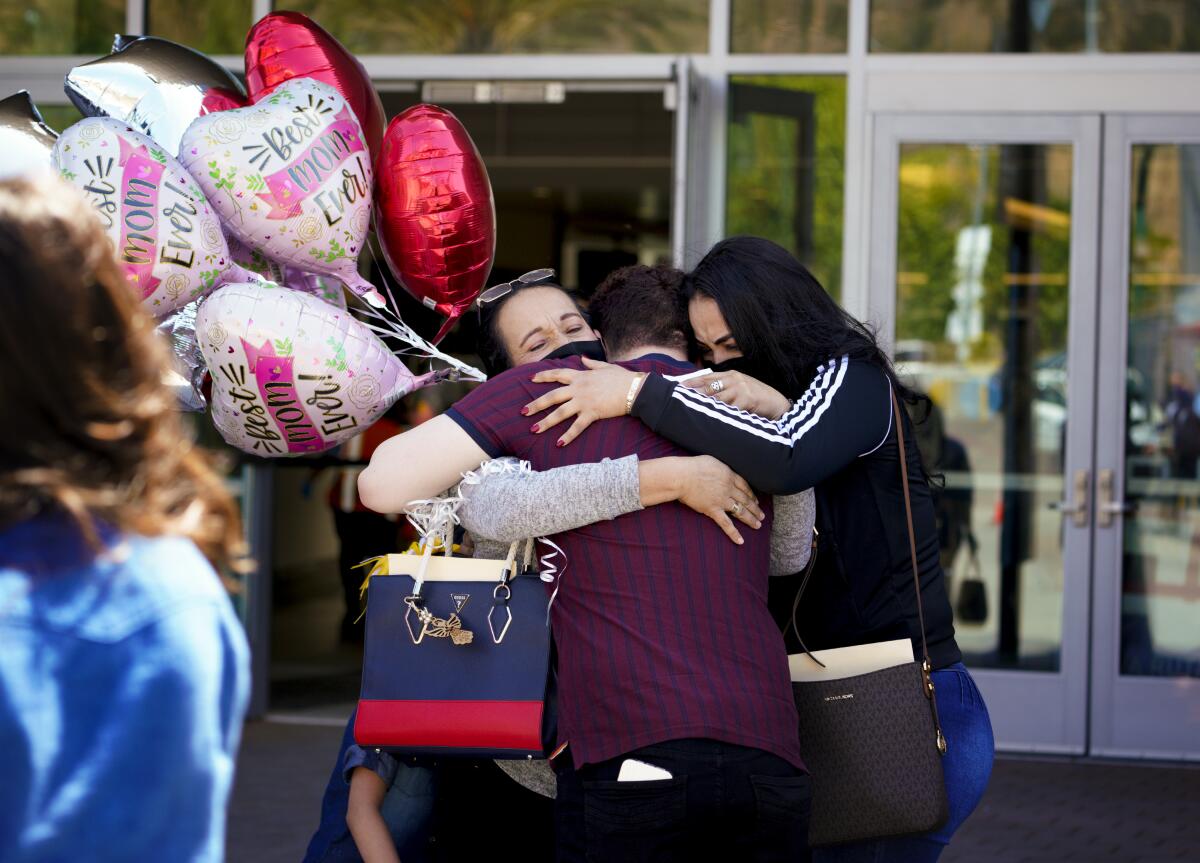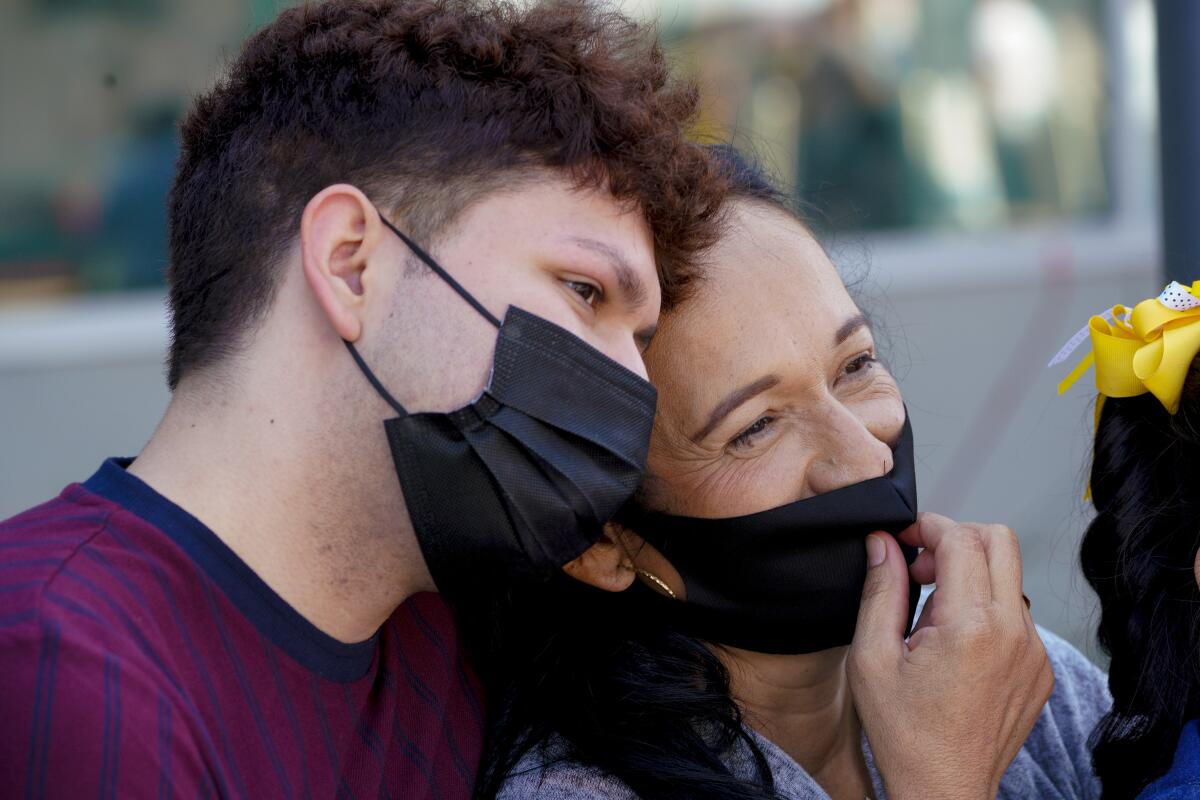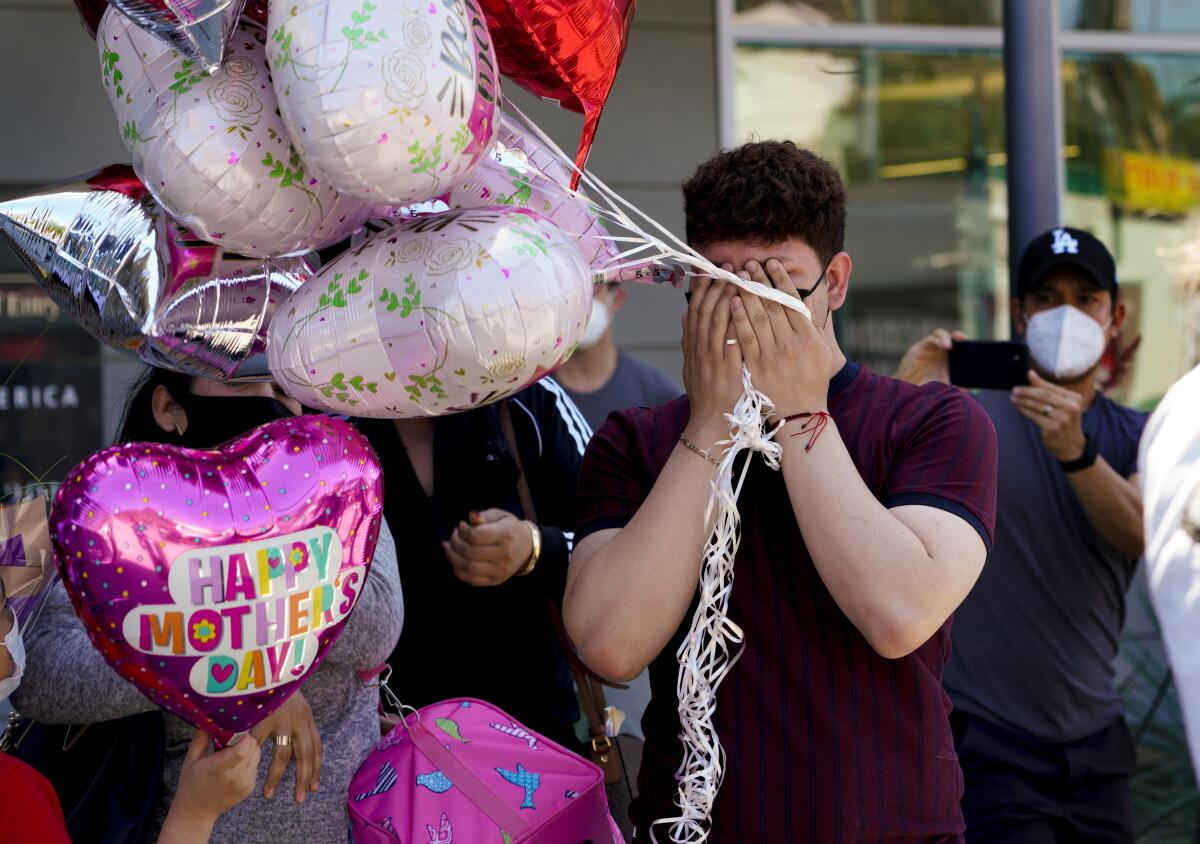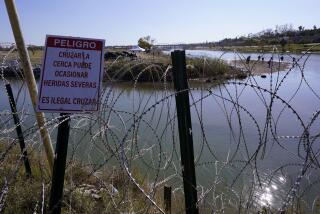A mother and son separated by the Trump administration meet again — finally

More than three years ago, Bryan Chavez hugged his mother inside a U.S. immigration office, terrified that he would never see her again.
“You are not going to see her anymore,” the female U.S. immigration officer told Chavez, according to his account. Then the officer turned to his mother Sandra Ortiz. “And you will go to prison.”
Mother and son were separated. Chavez went to an immigration facility in California. His mother, who didn’t pass an initial asylum screening, was deported to Mexico.
They were among the earliest family separations during the Trump administration, well before splitting families became publicized U.S. policy. More than a thousand families remain separated, but the long ordeal for Chavez and his mom is finally over.

On Tuesday afternoon outside the San Ysidro Port of Entry, the main border crossing point into San Diego from Tijuana, the pair were among the first four families separated by the Trump administration to be reunited under President Biden. Chavez brought a bunch of red, silver and pink Mother’s Day balloons to make up for the years he couldn’t shower her with gifts.
When he saw her, his hands flew to his face, overcome by emotion. They held each other, crying as people brushed by them in the bustling border crossing. “I was seeing her with my own eyes, but I couldn’t believe she was there in front of me,” Chavez said.
The mother and son reunion marks a key moment for the Biden administration, which is touting the homecomings as a way to signal more of a humanitarian approach to immigration — a departure from the “cruel” policies of the past administration. Earlier this week, Homeland Security Secretary Alejandro N. Mayorkas said a task force established by a February executive order has been “working day and night” on reunifying families and called this week’s reunion “just the beginning” and said more would follow.
But lawyers and advocates who have been working for several years on reunification efforts say the administration is dragging its feet and that these reunions could have happened sooner. They also criticize the administration for not doing more to provide funding for the travel and other costs.
Those funds are necessary because the Trump administration kept very little information on deported parents, so attorneys and advocates in Latin America at times have to search on foot and run radio segments to reach out to the deported parents.

Donors from U.S. have been footing much of the bill, said Erika Pinheiro, the litigation director for Al Otro Lado, a nonprofit that represents the family. Pinheiro said she was glad that Ortiz had been able to reunify with her family but that the Biden administration shouldn’t be taking so much credit for the moment. “The victory lap was definitely premature,” Pinheiro said.
The family’s ordeal began in October 2017, when they sought refuge at the San Ysidro port after fleeing cartels in Michoacán, Mexico, that killed Ortiz’s husband and tried to recruit Chavez, according to interviews with the family and their lawyers.
When the pair were separated, Chavez, 15 at the time, said he was so shocked he didn’t say anything. The mother and son cried and embraced for a moment before they were torn away. Ortiz couldn’t understand why they were being separated. She still remembers the way her son kept his eyes on her as he was escorted out.
Many families were separated the following spring under the Trump administration’s “zero tolerance” policy that required anyone who crossed the border illegally to be prosecuted. But Ortiz and Chavez did not cross illegally and were separated under much more nebulous policies that were never formally publicized. In all, more than 5,000 families were separated by the Trump administration, according to court filings. The parents of more than 400 children have yet to be located by advocates, according to court records.
Ortiz was eventually found in Michoacán, where she was working in the agricultural fields. After being separated from Chavez, she had failed to pass an asylum screening interview that is the gateway to immigration court. Many people fleeing organized crime groups struggle to pass this step, as the San Diego Union-Tribune reported in the case of a young man who was deported to Honduras and killed by those he fled.
It took nearly two months after their separation for Ortiz to talk with Chavez by phone, she said.
Her son, after more than a month in an immigration facility, had moved into his older brother’s home in Southern California. That’s where he learned their mother had been deported to Mexico. Ortiz’s exile meant she missed milestones in her son’s life. She wasn’t there for birthdays. She missed her son’s prom and — most important — his high school graduation two years ago.
Chavez will always wish his mother was able to see his accomplishments. “It was really difficult seeing all the other kids with moms hugging them. Moms crying and telling their children ‘We’re so proud of you,’” Chavez said.
Meanwhile, Ortiz watched her son’s life develop from afar, her feelings of pride at his successes mixed with sadness and punctuated by tear-filled phone calls. Each time he would tell her, “I wish you were here.”
What comes next for the family is far from clear. Chavez has a green card, but the legal status of Ortiz, who was allowed into the U.S. under humanitarian parole, has yet to be determined. U.S. officials have not formulated a policy for separated parents who have been allowed back into the country.
For the near future, her plan is clear. The two will eat Chinese food together, one of her son’s favorite meals and a memory that she holds dearly.
They will have plenty of time to get to know each other, but it may not be easy. In some ways, her boy has changed. He seemed quieter, without the joy that she remembered from his childhood.
But no matter what the future holds, both agreed, it would be better together.
More to Read
Start your day right
Sign up for Essential California for news, features and recommendations from the L.A. Times and beyond in your inbox six days a week.
You may occasionally receive promotional content from the Los Angeles Times.









